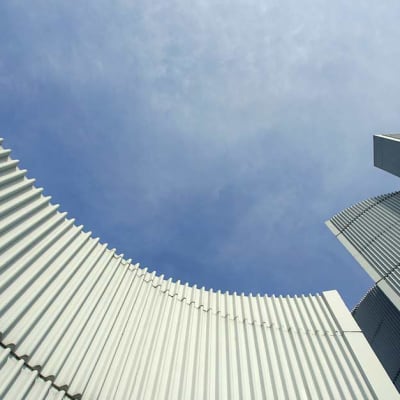MARKET REVIEW
Q1 2025 began like a roller coaster, with numerous developments unfolding. These included a reversal of the prolonged US growth and tech trade, and a value recovery led by Europe and emerging markets. Additionally, interest rates displayed divergent trends, with rates declining in the US and rising in the eurozone. Even the typically sluggish European region has provided reasons to invest in its future. These changes have led to rapidly evolving shifts in trends, favouring value-oriented trades. The level of uncertainty was most acute in March, due to US-led trade tensions.
Key events during the quarter occurred in Europe and the US. Germany made a historic move by shifting away from its conservative and debt-averse fiscal policy to support increased defence spending and a special fund for infrastructure. In parallel, the EU announced the ReArm Europe plan, which could mobilise close to EUR 800 bn for defence spending. In the US, the Trump administration remained fully committed to its aggressive trade proposals, with potential widespread reciprocal tariffs to be announced in early April.
The equity market was therefore caught in significant cross-currents. In the US, investors worried about the negative implications of higher tariffs for the domestic consumer, growth, inflation, and the reaction function of monetary policy. On the European side, however, the mood was somewhat more constructive as cyclical equities benefited from the positive perspective of fiscal loosening.
PERFORMANCE COMMENT
In the month of March, in a down market, the Planetary Transition Fund outperformed its reference index, due to positive sector allocation and an even stronger stock selection effect. The strategy benefited from its overexposure to Utilities, a defensive sector. Stock selection was particularly strong in Consumer Discretionary, but also in Information Technology and Materials, which more than offset weakness in Industrials and Healthcare. In March, the top-three contributors were Wheaton Precious Metals (24.5%), Enel (10.6%), and Pan American Silver Corp (17.1%), while the bottom-three performers were Novo Nordisk (-23.4%), ASM International (-15.9%) and Taiwan Semiconductor (-13.2%).
If we zoom out to the quarterly trends, in 1Q25, the portfolio slightly underperformed its reference index. This was driven mainly by sector effects, as we faced headwinds from our structural under-allocation to traditional banks and energy companies. These two sectors were effectively up in a down market. Wheaton Precious Metals (a leading supplier of transition metals) showed up again among the top performers (+75%), followed by BYD (+47%), which officially became the world’s largest EV producer by sales. We also saw the defensive profile of Republic Services (US waste management) delivering a solid positive return of around 20%. On the negative side, the key headwind was the unwinding dynamic of the AI ecosystem. Investors became more cautious following the DeepSeek announcement that the buildout of infrastructure might have become excessive. ASM International, Taiwan Semiconductor and NVENT were all down c. 20% over the period, which we view as disconnected from the earnings profiles and profitability prospects of these names.
PORTFOLIO POSITIONING
In February, we took profits in Republic Services and MercadoLibre to fund new high-conviction positions. We first added Aptiv, a key provider of essential components for electric vehicles, including cable management and active safety products. While the market has become increasingly concerned over the rollout of electric vehicles, Aptiv focuses on the broader smartification of vehicles and is well positioned.
We also re-entered Steel Dynamics, a leading producer of steel from scrap using electric arc furnace technology. The company has also developed a low-carbon aluminium plant. We are very positive about upcoming cash generation from its broad asset base, which is well-exposed to demand for local and highly efficient raw materials in the US, which are used in everything from new infrastructure to wind turbines.
OUTLOOK FOR THE STRATEGY
In 2024, as the inflation battle seemed over, countries began to move towards more accommodative monetary policies, with rate cuts across key economies, except for Japan. The narrative of a soft landing is starting to take shape, favouring a broadening of the equity market performance into 2025, after having been concentrated in a narrow set of stocks since 2023.
Many of our themes were left behind and encountered cyclical headwinds, such as clean energy-related themes, which have seen a decline of over 20% for two years in a row. Despite these cyclical headwinds, we believe that the structural trends we focus on are firmly established. Looking ahead into 2025, we identify several attractive opportunities that are unduly overlooked and could regain investor attention.
Overall, our portfolio adheres to the principles of strong quality growth, while maintaining disciplined valuation. With our dedicated sustainability research team encompassing system changes across sectors, we are confident that the Planetary Transition strategy is well-positioned to capture investment opportunities arising from a society that is transitioning to net zero, while becoming more nature-positive and socially equitable. This provides investors with a diverse range of growth opportunities.
FUND STRATEGY
At Lombard Odier, we firmly believe that the current global economic model is unsustainable, and we recognise the ongoing transition towards a circular, lean, inclusive and clean economic model. This transition is driving fundamental changes in material systems across value chains and industries. These changes should accelerate through market inflection points, where the adoption of sustainable products and services will rapidly increase, shifting from niche to mass market. As a result, new and evolving profit pools will emerge within and across sectors.
Our investment approach for the Planetary Transition strategy is guided by a systems-change framework. We understand that these systems are interconnected with planetary boundaries. This strategy serves as the overarching approach for LOIM's holistiQ investment philosophy, focusing on various sustainable themes within key systems such as industrials, consumers, materials and energy. Additionally, we identify other opportunities for system changes that contribute to a society that values planetary boundaries and aligns with the sustainability transition.
The strategy encompasses key themes, including green sources of power, electrification of demand (in areas such as mobility, buildings and industry), the bioeconomy, new food systems, resource efficiency, circularity, zero waste, preventive case, new consumers and enabling technology solutions across multiple systems.







